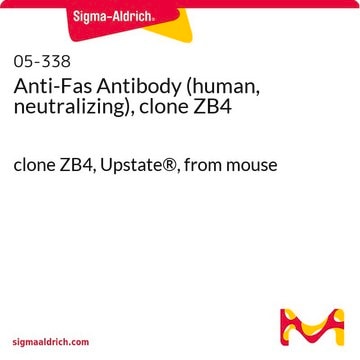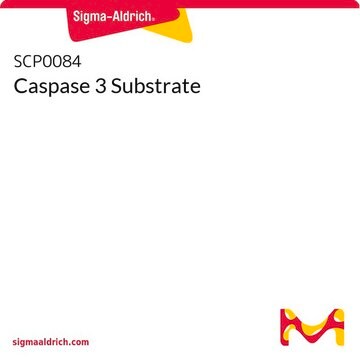MABE148
Anti-HMGB1 Antibody, clone HMG1-5H6
clone HMG1-5H6, from hamster
Synonym(s):
High mobility group protein 1, Sulfoglucuronyl carbohydrate binding protein, high mobility group box 1, high-mobility group (nonhistone chromosomal) protein 1, high-mobility group box 1
About This Item
Recommended Products
biological source
hamster
Quality Level
100
300
antibody form
purified antibody
antibody product type
primary antibodies
clone
HMG1-5H6, monoclonal
species reactivity
rat, mouse, human
technique(s)
flow cytometry: suitable
immunofluorescence: suitable
western blot: suitable
NCBI accession no.
UniProt accession no.
shipped in
wet ice
target post-translational modification
unmodified
Gene Information
human ... HMGB1(3146)
Related Categories
General description
Immunogen
Application
Flow Cytometry Analysis: A representative lot detected HMGB1 in RAW264.7 cells treated with Cytofix/Cytoperm. (Image courtesy of Dr. Hideo Yagita, Juntendo University School of Medicine.)
Epigenetics & Nuclear Function
Epigenetics & Nuclear Function
Chromatin Biology
Cell Cycle, DNA Replication & Repair
Quality
Western Blot Analysis: 1:500 dilution of this antibody detected HMGB1 on 10 µg of NIH/3T3 cell lysate.
Target description
Physical form
Storage and Stability
Analysis Note
NIH/3T3 cell lysate
Disclaimer
Not finding the right product?
Try our Product Selector Tool.
recommended
Storage Class Code
12 - Non Combustible Liquids
WGK
WGK 1
Flash Point(F)
Not applicable
Flash Point(C)
Not applicable
Certificates of Analysis (COA)
Search for Certificates of Analysis (COA) by entering the products Lot/Batch Number. Lot and Batch Numbers can be found on a product’s label following the words ‘Lot’ or ‘Batch’.
Already Own This Product?
Find documentation for the products that you have recently purchased in the Document Library.
Our team of scientists has experience in all areas of research including Life Science, Material Science, Chemical Synthesis, Chromatography, Analytical and many others.
Contact Technical Service






